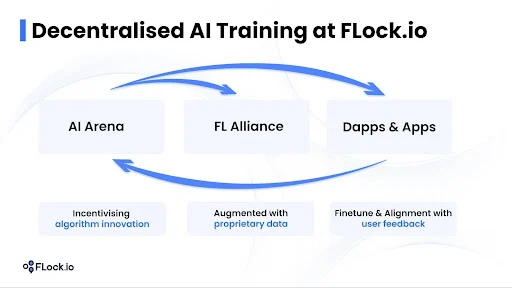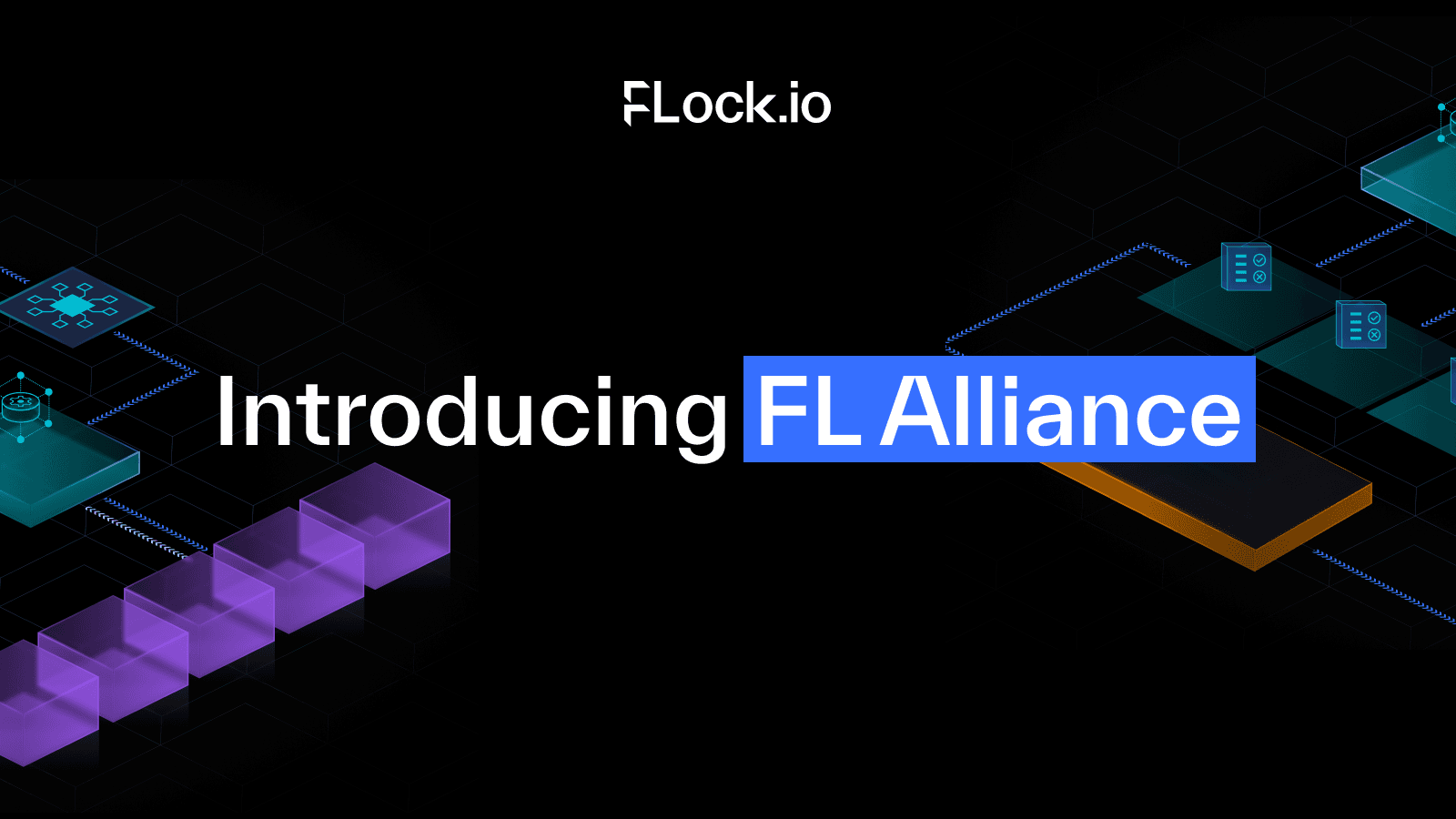This blog is a repost from an article originally published in The Block.
Overview
FLock.io has opened train.flock.io, the web app of its AI training platform. By integrating private data and on-chain rewards, FLock ensures equitable incentives and fosters open collaboration. It addresses the need for bespoke AI models from Web3 and Web2 projects while protecting data privacy by training models without exposing source data.
This beta brings Web3 a leap closer to traceable contribution and on-chain incentivisation for data owners, model developers and compute providers. The vision is to create specialised models for diverse communities.
FLock.io invites the public to get involved with executing tasks to shape the future of AI model training.
Model developers receive on-chain rewards
Crypto incentives play a key part in driving momentum in open-source, composable AI development. They offer a solution to the financial unsustainability that open-source projects often face.
To participate in a task, every user initially stakes $FML, FLock.io’s beta token, to signify their commitment. Developers can choose between running fully automated training/ validation scripts or create their own bespoke process for better performance.
The staking mechanism encourages good behaviour, as users are rewarded or penalised according to their actions. The blockchain ensures the security and integrity of the staking and incentive processes.
FLock.io researchers recently published a paper on its role in preventing malicious attacks in the journal IEEE Transactions on Artificial Intelligence.
Participate as a training node, validator, or delegator
Users can participate in the network in several ways.
Firstly, training nodes handle AI task training. They are required to stake tokens for system engagement and task eligibility. FLock.io has provided a training script as a quickstart.
Secondly, validators run a validation script to evaluate the models submitted by training nodes, and ensure fair task distribution. Rewards are determined by FLock.io’s on-chain model consensus, which takes into account the distribution of validation scores and validators’ stakes. Validators too can claim rewards following task completion.
Thirdly, delegators delegate tokens to validators, facilitating reward distribution. They enhance the validation process by supporting other participants’ stakes, indirectly boosting the network’s efficiency and reward mechanism.
Task creation will soon open up as a fourth way to participate. This is currently handled by the FLock.io team, and involves defining desired models.
These network participants are coordinated by the onchain rewards mechanism to produce a diverse range of AI models required by communities, such as AI companions and assistants, crypto trading bots, a Web3 search engine, and more.
Foundry participates in FLock.io beta
Foundry, a leading node operator in decentralised AI, is participating in the FLock.io incentivised beta to provide valuable feedback.
“Foundry is excited to participate in the FLock.io beta, operating both Training and Validator nodes. FLock.io’s focus on decentralising and democratising AI is squarely aligned with Foundry’s mission of empowering a decentralised infrastructure.
“Our partnership with FLock.io marks a milestone in Foundry’s commitment to advancing decentralised AI for generations to come,” said Mike Colyer, Foundry CEO.
Closing thoughts
You are invited to visit train.flock.io to begin training today. Visit our docs for a step-by-step guide on how to get whitelisted to begin training models.
For future updates, follow FLock.io on Twitter.
Flock.io's decentralised AI training platform, train.flock.io, is now in beta, offering incentivised tasks for users to stake tokens and help train and refine models. The platform aims to foster open collaboration while protecting data privacy, addressing the need for bespoke AI models for Web3 and Web2 projects. Participants can engage as training nodes, validators, or delegators, with rewards determined by on-chain model consensus. Foundry, a leading node operator in decentralised AI, is participating in the beta, highlighting the platform's alignment with its mission of empowering a decentralised infrastructure.







